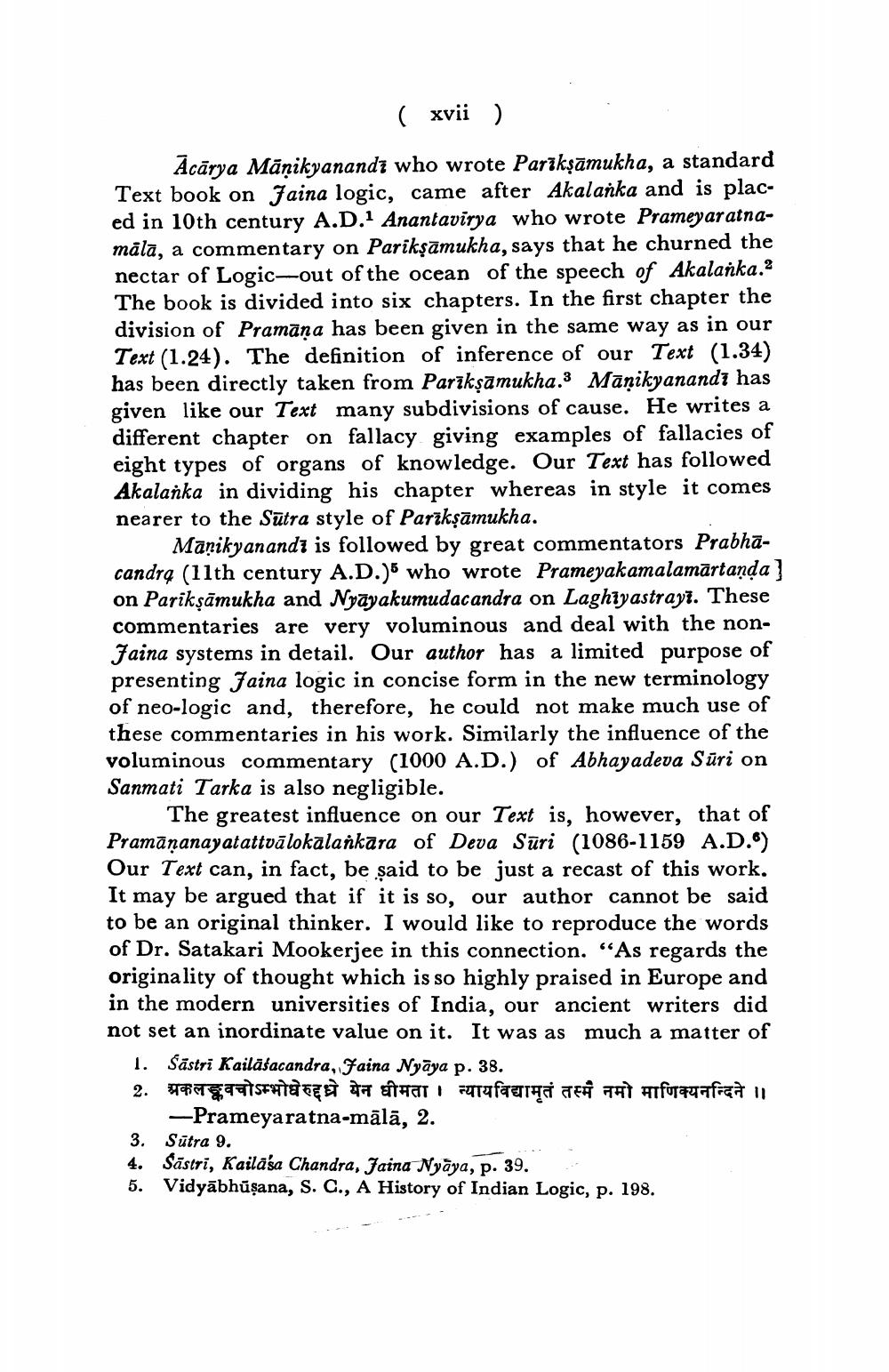________________
( xvii)
Acārya Mānikyanandı who wrote Parīkņāmukha, a standard Text book on Jaina logic, came after Akalanka and is placed in 10th century A.D.1 Anantavirya who wrote Prameyaratnamāla, a commentary on Parikşāmukha, says that he churned the nectar of Logic-out of the ocean of the speech of Akalanka. The book is divided into six chapters. In the first chapter the division of Pramāņa has been given in the same way as in our Text (1.24). The definition of inference of our Text (1.34) has been directly taken from Pariksāmukha.3 Manikyanandi has given like our Text many subdivisions of cause. He writes a different chapter on fallacy giving examples of fallacies of eight types of organs of knowledge. Our Text has followed Akalanka in dividing his chapter whereas in style it comes nearer to the Sutra style of Parikşāmukha.
Manikyanandi is followed by great commentators Prabhacandro (11th century A.D.)5 who wrote Prameyakamalamārtanda on Pariksāmukha and Nyayakumudacandra on Laghiyastrayi. These commentaries are very voluminous and deal with the nonJaina systems in detail. Our author has a limited purpose of presenting Faina logic in concise form in the new terminology of neo-logic and, therefore, he could not make much use of these commentaries in his work. Similarly the influence of the voluminous commentary (1000 A.D.) of Abhayadeva Sūri on Sanmati Tarka is also negligible.
The greatest influence on our Text is, however, that of Pramāṇanayatattvālokalankāra of Deva Sūri (1086-1159 A.D.) Our Text can, in fact, be said to be just a recast of this work. It may be argued that if it is so, our author cannot be said to be an original thinker. I would like to reproduce the words of Dr. Satakari Mookerjee in this connection. “As regards the originality of thought which is so highly praised in Europe and in the modern universities of India, our ancient writers did not set an inordinate value on it. It was as much a matter of
1. Sastri Kailāśacandra, Jaina Nyāya p. 38. 2. अकलङ्कवचोऽम्भोधेरुद्दधे येन धीमता। न्यायविद्यामृतं तस्मै नमो माणिक्यनन्दिने ।
-Prameyaratna-mālā, 2. 3. Sutra 9. 4. Sāstri, Kailasa Chandra, Jaina Nyāya, p. 39. 5. Vidyābhūşana, S. C., A History of Indian Logic, p. 198.




